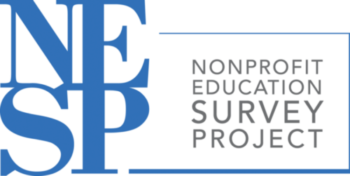Our research would not be possible without the participation of nonprofit education graduate programs across the United States who work with us to survey the alumni from their programs.
Programs that participate are provided with a technical report and/or data that compares the responses of their alumni to the aggregate on topics including:
- A pre-degree assessment that explores your alumni’s reasons for obtaining their degree and rationales for choosing your program
- A post-degree assessment that explores perceptions of your program as a whole, an assessment of different aspects of your program, and perceptions of building a career in the nonprofit sector
- A work assessment that explores how your alumni’s degree relates to their current work experiences
- A demographic profile of your students
These findings can be utilized by programs in a variety of ways including in marketing materials, in curriculum/pedagogical decisions, and program assessment.
Interested in Participating?
If you are interesting in participating in our current or future rounds of NESP, please contact one of our investigators for further information.
We will share a Statement of Mutual Expectations that delineates the two options for participating: 1) Sending the survey directly to your alumni, or 2) Sharing a list of recent alumni contacts and having the researchers send the survey invitation. We ask that schools participating in the study follow a protocol and timeline for survey delivery and outreach so that a standard method of survey research can be coordinated across participating schools.
How participation works
Programs invite their alumni to participate in this study. Surveys are either sent from the school directly or by the researchers.
Surveys are made available for completion online, using the web-based platform Qualtrics and typically take approximately 15 minutes to complete. The survey consists of a series of close and open-ended questions related to student experiences in a nonprofit education degree program and work experiences post-degree.
Aside from required socio-demographic and employment information, we ask that all schools engage at least three of our five survey modules, which include questions about:
- Sector commitment, identity, and meaning of work
- Financial impact of nonprofit degree
- Acquired skills and competencies and their application
- Employability and return on investment
- Online education and school reputation
